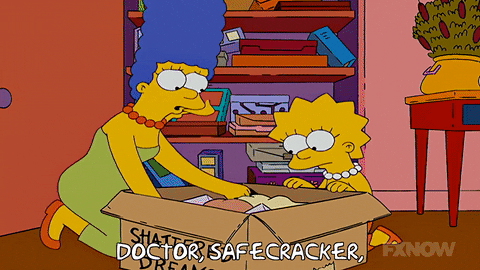Recently, a reader asked me to research the best way to store documents and valuables. As I looked into it, I decided that there’s nothing that’s perfect, but you should still do something to protect important information. Here’s what I came up with, rated from cheapest to most expensive:
Your freezer: Put papers, valuables, and cash into a plastic bag in the back of your freezer.
Pros: Cheap! Your refrigerator is relatively fire and flood resistant, too.
Cons: Not perfectly fireproof or flood resistant. Thieves know that people hide valuables in freezers, so they usually check it out on their way to see what’s under the mattresses and in the top dresser drawers.
Digital storage: Scan important documents with your phone and store them on the cloud. This is super easy, as you can scan right into Google Drive. Just open up the Google Drive app, click on the plus sign, hit scan, and go. Secure your account with two-factor authentication.
Pros: Cheap! Protects documents against fire and flood.
Cons: It’s a bit of a hassle to scan everything. You need to protect the password. Everything can be hacked. Doesn’t protect cash or jewelry.
Bank safe deposit box: Old school security.
Pros: Rather secure place to hold documents, jewelry, and cash.
Cons: Not as secure as you might think, and your items are not insured by the bank or the federal government. Here’s an alarming article (gift link) that the New York Times ran six years ago.
Personal safe: Many people opt for getting their own safe. There’s a huge range on the market, depending on how big a safe you need and how secure you need it to be against theft, fire, and flood. Not many safes are good at all three, so you may want to figure out what you need. The New York Times Wirecutter column has reviews.
Pros: Once you have one, it’s really convenient.
Cons: If your safe is lightweight, a thief can just take it out the door. A lot of fireproof safes can’t hold up to a long and hot fire, like the ones experienced by many people in California, or prolonged submersion, like many people experienced in Hurricane Helene.
Based on this, I suggest scanning important documents. Wearing jewelry is probably safer than storing it, but it’s not always practical, so get insurance that covers especially valuable pieces. You might need separate riders for musical instruments, artwork, and coin collections, too. If you want to keep cash at home, divide it up and place it in a few different places: a thief might find some of your hiding places, but probably not all of them.
If you lose all your documents, the IRS has a handy guide to reconstructing them. (I was audited several years ago, and the examiner was pleasantly surprised that I had all my files. “Most people tell me their files were lost in a basement flood,” he said.)
Do you have any good suggestions? Let us know in the comments.






I’m a huge fan of digital documents. Easier to share with those who will manage your estate when you’re gone, too.